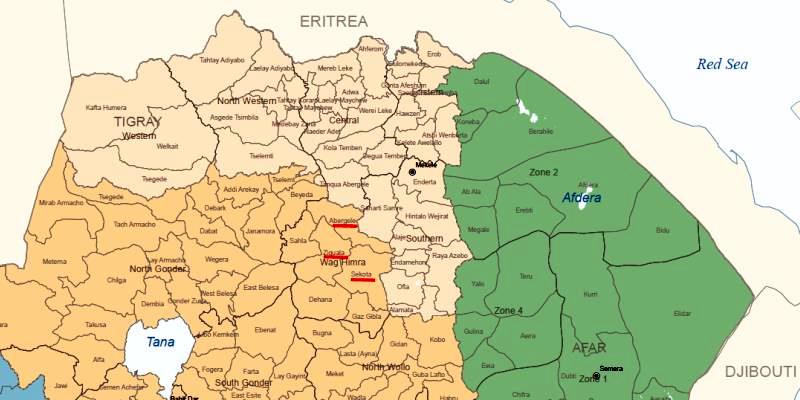(The Capital)
Ethiopia is going to extract iron ore on a large scale for the first time, after an agreement was signed by the Ministry of Mines, Petroleum and Natural Gas (MoMPNG) and Sekota Mining Plc on Thursday August 24.
Sekota will invest half a billion USD to finish the project. It will take place in three phases.
The first phase is expected to be completed by the middle of 2019. Ethiopia’s steel industry, especially Rebar production, has significantly expanded. However raw material is mostly imported, taking up much hard currency.
Exploring for and mining iron ore were studied in the northern Amhara region, at Wag Himra Zone. Locally mined iron ore will mean not having to rely on importing billets for the steel industry, according to experts.

The exploration work took five years, according to Ermias Kassa, head of Ermias Kassa Minerals Consulting Service who is a senior consultant in the mineral resource industry, that led the Sekota project exploration and feasibility study.
The company’s exploration license, that it acquired in February 2012, was for exploring for iron ore about 740km north of Addis in three weredas; Sekota, Ziquala and Abergelle of Wag Himra Zone. It covered 242 square km.
“Iron ore production will take place in Sekota and Ziquala weredas,” Ermias explained.
The exploration work outlined a total mineable reserve of 29 million tons of iron ore with 24 million tons of contained iron ore.
A statement by the company indicated that a number of mineralogical and metallurgical tests were conducted by Sino Steel Institute of China to determine ore beneficiation and recovery methods.
“The ore beneficiation method will also include crushing, grinding and two stage spiral gravity concentration. The ore recovery method will involve a magnetizing roast reduction process using a tunnel kiln, which will reduce the concentrated oxide ore into a direct reduced iron (DRI) that is also called sponge iron,” a statement explained.
According to the company, the DRI or sponge iron, with a grade of 72 percent, will be a direct feed to steel mills in the country or can be exported.
The company will be the first sponge iron industry in the country when it begins operating in 2019.
The second and third phase of the project will allow for production of rebar and high-rise prefabricated steel structure productions respectively.
When the company commences high-rise prefabricated steel structure production, which is one of the major construction inputs for huge building structures, it will be one of the leading producers in the country.
Currently the product, which is required for building construction projects, is mainly imported.
The total investment of the project that will be expected fully ended in the coming five years will be USD 500 million, while the exploration cost has not been revealed.
“At the current stage we cannot give the cost of the exploration because there is an exploration extension taking place,” Ermias said.
Ermias also led exploration for silica sand with Newera Mining Plc, which signed the first large scale production agreement with MoMPNG two weeks ago to mine silica sand about 113km south west of Addis Ababa in Gurage zone, SNNP.
Sekota is a JV company that includes Ethiopian born Italian citizen Luciano Frattolin, who is a major shareholder and CBRF Group, a Chinese company that has ample worldwide expertise in the sector.
Luciano, CEO of Sekota, said that the company is committed to deliver the project in the proposed timeframe and involve in developing the local community through job, community development and upgrading the local infrastructure.
“Iron ore is a strategic mineral for the country and the international market price is increasing every day. We will start exporting our product once we satisfy the local market,” the CEO added.
Solomon Mulugeta, General Manager of the Ethiopian Association of Basic Metals and Engineering Industries (EABMEI), told Capital exploring for and producing iron ore is crucial for development.
He said that the country has to produce resources locally, since the steel industry is growing significantly.
Experts indicated small scale iron ore did occur during the Italian evasion era, but it was very small and limited.
*********
* Originally published on The Capital on August 28, 2017, titled Large scale Iron Ore production could be a reality by 2019





